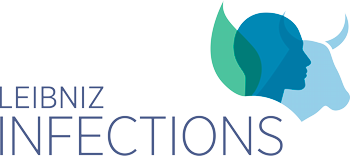In the seed money project AirBarn, aerosols inside and from animal barns are investigated as a potential source for airborne pathogens. It is known that the use of antibiotics in agriculture often selects antibiotic-resistant bacteria, but the extent to which environmental influences can change the composition of bacteria in bioaerosols and where risks arise for humans and the environment are still open research questions.
In the seed money project AirBarn, aerosols inside and from animal barns are investigated as a potential source for airborne pathogens. It is known that the use of antibiotics in agriculture often selects antibiotic-resistant bacteria, but the extent to which environmental influences can change the composition of bacteria in bioaerosols and where risks arise for humans and the environment are still open research questions. In AirBarn, the size and density of fine dust particles in the pig barn will be measured. The prevalence of pathogenic microorganisms on airborne particles and the occurrence of antibiotic resistance will be investigated. Under the hypothesis that the abundance of AMR bacteria in bioaerosols varies depending on environmental conditions (temperature and humidity), different methods (microscopy, bacterial cultivation, next generation sequencing and PCR/qPCR) are applied to investigate bioaerosols in the pig barn. The aim is to gain a better understanding of the aerobiology of pathogen-containing aerosols in pig farms.
Start: 01.10.2024
End: 30.09.2025
Coordinating Institutes:
- Leibniz-Institut für Agrartechnik und Bioökonomie e.V. (ATB)
- Robert Koch-Institut Berlin (RKI)
Partner:
- Leibniz Institute DSMZ-German Collection of Microorganisms and Cell Cultures
- Leibniz Centre for Agricultural Landscape Research (ZALF)
- Lehr- und Versuchsanstalt für Tierzucht und Tierhaltung e.V. (LVAT)
- Leibniz Innovation Farm for Sustainable Bioeconomy (InnoHof)
Weitere Informationen: ATB: Bioaerosol occurrence and transmission of antimicrobial resistances in pig husbandry (atb-potsdam.de)


